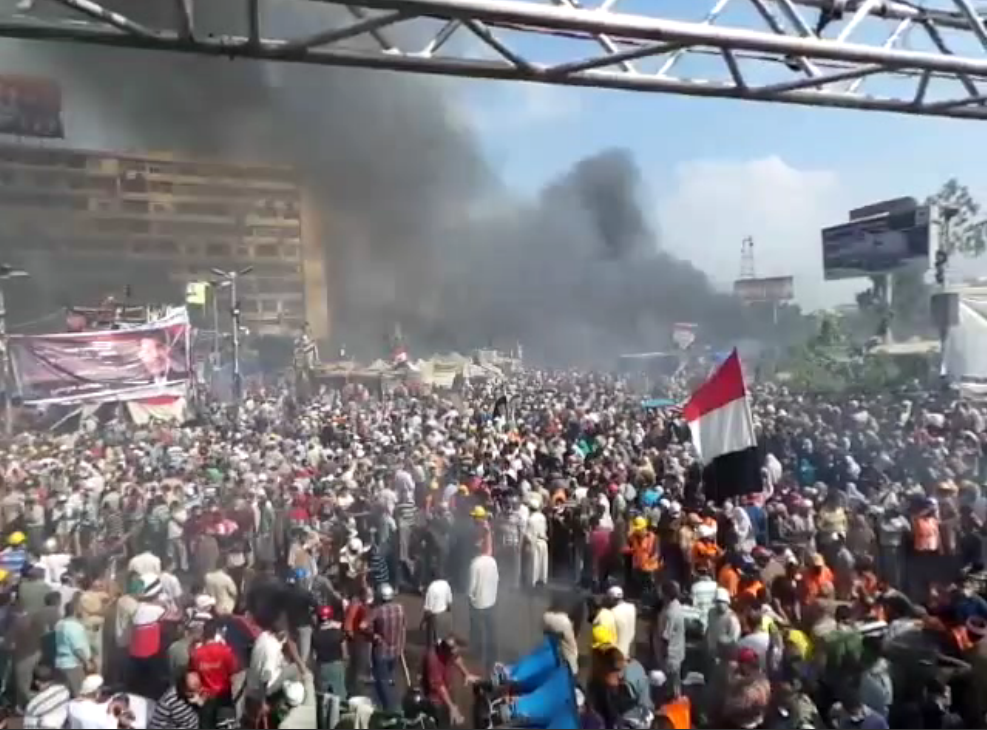Rabaa massacre
 On 14 August 2013, the Egyptian police (and to a lesser extent the armed forces), under the command of then-Defense Minister Abdel Fattah el-Sisi, used lethal force to “disperse” two camps of protesters in Cairo: one at al-Nahda Square and a larger one at Rabaa al-Adawiya Square. The two sites had been occupied by supporters of President Mohamed Morsi, who had been removed from office by the military a little over a month earlier following mass protests against his rule. Initiatives to end the six-week sit-ins by peaceful means had failed, and the camps were cleared out within hours.
On 14 August 2013, the Egyptian police (and to a lesser extent the armed forces), under the command of then-Defense Minister Abdel Fattah el-Sisi, used lethal force to “disperse” two camps of protesters in Cairo: one at al-Nahda Square and a larger one at Rabaa al-Adawiya Square. The two sites had been occupied by supporters of President Mohamed Morsi, who had been removed from office by the military a little over a month earlier following mass protests against his rule. Initiatives to end the six-week sit-ins by peaceful means had failed, and the camps were cleared out within hours.Human Rights Watch described the sit-in dispersals as crimes against humanity, and called them "one of the world's largest killings of demonstrators in a single day in recent history", in reference to the numerous deaths that occurred.
The exact death toll during the incident is unclear, and multiple sources have given conflicting estimates. HRW states that at least 904 protesters were killed (817 in Rabaa Square and 87 in al-Nahda Square), while strongly suggesting that at least 1,000 protesters died during the dispersal. The Egyptian Health Ministry announced that 595 protesters and 43 police officers were killed, and at least 3,994 individuals were injured. The official Forensic Medical Authority stated that the number of police officers killed was eight. Egypt's National Council for Human Rights stated that at least 624 civilians were killed. The Muslim Brotherhood and the National Coalition for Supporting Legitimacy stated the number of deaths from the Rabaa al-Adawiya Mosque sit-in alone was about 2,600. The total casualty count made 14 August the deadliest day in Egypt since the 2011 Egyptian revolution which toppled former President Hosni Mubarak.
Several world leaders denounced the deadly violence during the sit-in dispersals. As the violent acts of retaliation by Islamist groups followed in several cities across Egypt, the military-appointed interim government declared a three-month-long state of emergency and curfews were enforced in many cities. Provided by Wikipedia
Please enable Javascript.
Please upgrade your browser.